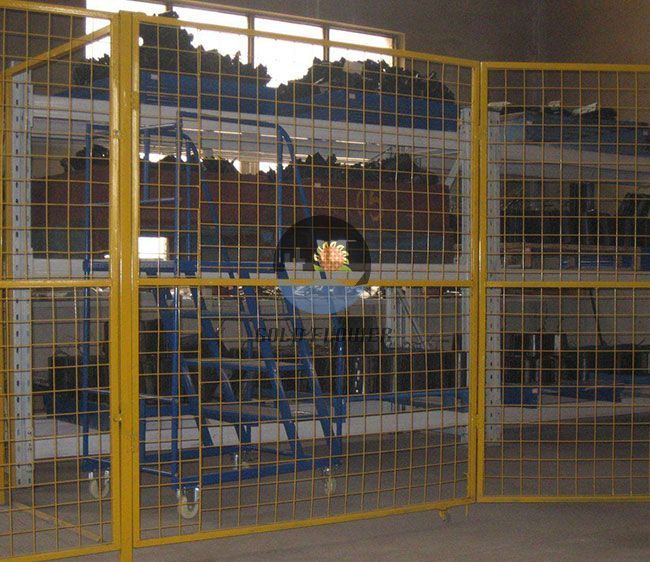dec . 19, 2024 22:30 Back to list
best wire mesh screen
The Best Wire Mesh Screen A Comprehensive Guide
Wire mesh screens have become an essential tool across various industries and applications. From construction and agriculture to food processing and home improvement, the versatility and functionality of wire mesh screens are unmatched. Choosing the best wire mesh screen tailored to your specific needs can enhance productivity, improve safety, and optimize performance. This article delves into the selection criteria, types, and applications of wire mesh screens to help you make an informed decision.
Understanding Wire Mesh Screens
Wire mesh screens are made up of interconnected wire strands, forming a grid-like pattern that can effectively filter, sort, or support materials. The construction material, weave type, and wire diameter can vary significantly, providing options suitable for different purposes. Stainless steel, galvanized steel, aluminum, and brass are among the common materials used in wire mesh production, each with unique characteristics.
Key Considerations for Selection
1. Material The choice of wire material affects the durability, corrosion resistance, and overall performance of the screen. Stainless steel is preferred for its high resistance to rust and heat, making it ideal for food processing and chemical industries. On the other hand, galvanized steel offers cost-effectiveness and moderate resistance, suitable for construction and general use.
2. Wire Diameter and Mesh Count The diameter of the wire and the number of strands per inch (mesh count) will dramatically impact the screen's filtering capabilities. Thicker wires provide greater strength, while finer meshes can filter smaller particles. It is essential to strike a balance based on the specific application requirements.
3. Weave Type Wire mesh screens can be woven in various configurations, such as plain weave, twill weave, and welded mesh. Plain weave is the most common, where wires cross over and under each other, forming a uniform grid. Twill weave offers higher strength and load-bearing capabilities, while welded mesh is typically used for applications requiring rigidity and minimal flexibility.
4. Opening Size The size of the openings between wire strands is critical for determining the application. Smaller openings are used for filtering and sifting fine materials, while larger openings are suitable for drainage and ventilation purposes.
5. Finish and Coating The surface finish of the wire mesh can impact its longevity and maintenance. Options like powder coating, PVC coating, or electro-polishing can enhance corrosion resistance and reduce friction, depending on your application's environmental conditions.
Types of Wire Mesh Screens
best wire mesh screen

- Industrial Wire Mesh Commonly used in manufacturing, mining, and construction
. They are designed for heavy-duty applications where durability and strength are paramount.- Window Screens These are typically made from lighter gauge wire and are used to keep bugs out while allowing air flow. They can be custom-fitted for residential and commercial properties.
- Horticultural Mesh Specifically designed for gardening, this type allows sunlight and air to penetrate while keeping pests out. They're often used in greenhouses and plant nurseries.
- Security Mesh Enhanced for strength and rigidity, security mesh screens are utilized in windows, doors, and fencing to provide an additional layer of security against intrusion.
- Filter Screens Widely used in the food, pharmaceutical, and chemical industries, filter screens are designed to separate solids from liquids or different particle sizes.
Applications of Wire Mesh Screens
Wire mesh screens find extensive applications across a range of areas
- Construction Used as reinforcement in concrete or for temporary barriers on construction sites. - Agriculture Ideal for crop protection, animal enclosures, and fencing. - Food Processing Essential for sieving, filtering, and protecting enclosed spaces from contaminants. - Mining Utilized for sifting through various materials, ensuring efficient processing and material separation. - Home Improvement Widely used in DIY projects such as garden fencing, drainage, and ventilation.
Conclusion
Choosing the best wire mesh screen involves evaluating your specific needs, considering factors such as material, wire diameter, weave type, and intended application. With a plethora of options available, it is crucial to assess the purpose of the wire mesh screen carefully. Whether for industrial use, gardening, or security, selecting the right wire mesh can lead to improved efficiency, safety, and longevity in your projects. Investing time in selecting the best material and specifications can pay dividends in performance and satisfaction.
share
-
Safety Mesh for Windows – Durable Mosquito and Insect Protection Solutions
NewsJul.08,2025
-
12x24x1 Air Filter – High Efficiency Replacement for Improved Air Quality
NewsJul.08,2025
-
Premium Stainless Steel Mosquito Mesh - Durable, Rust-Resistant Protection for Windows & Doors
NewsJul.08,2025
-
Premium Stainless Steel Garden Mesh for Lasting Durability Best & High Quality Mesh Solutions
NewsJul.07,2025
-
Gold and White Blackout Curtains – Elegant Light Blocking & Insulation for Home
NewsJul.07,2025
-
Premium Spa Filter Cartridge for Clean Water Spa Pool Filters Cartridges for Jacuzzi Durable, high-efficiency spa filter cartridge for spas and jacuzzis. Improve water quality—order your pool filter cartridge now!
NewsJul.07,2025

